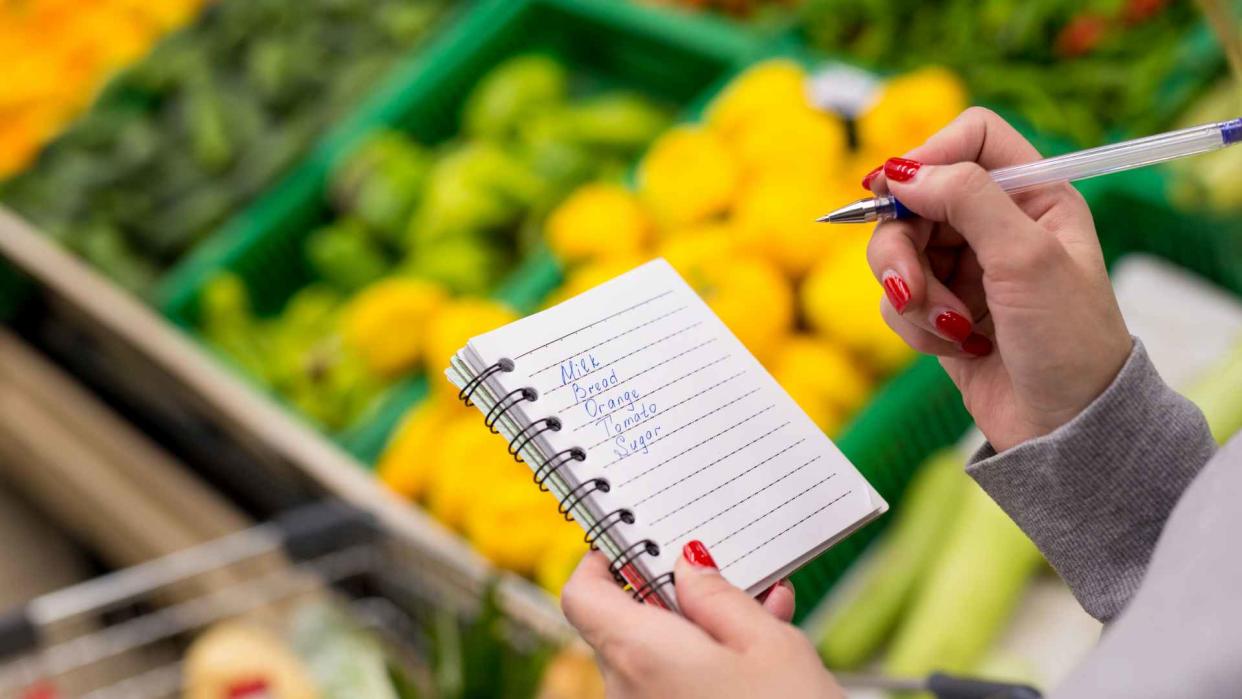Trump vs. Biden Again in 2024? What That Could Mean for Your Grocery Bill

The candidates for U.S. president in 2024 aren’t yet official, but there’s a high likelihood that we will see a Joe Biden vs. Donald Trump rematch. With drastically different economic strategies, many consumers are concerned about what either of these men winning will mean for their bills. This is especially true for groceries, of which prices have skyrocketed due to steep inflation over the past few years.
Check Out: 7 Grocery Items To Avoid While on a Retirement Budget
Try This: How To Get $340 Per Year in Cash Back on Gas and Other Things You Already Buy
According to Nathan Jacobs, senior researcher at The Money Mongers, “The economic impacts of a potential reprisal between these two candidates could be significant, given their differing economic policies. Consumer confidence, inflation, and the cost of groceries are all influenced by a variety of factors, including fiscal policy, trade policy, and regulatory decisions, which can vary greatly between administrations.”
With Jacobs’ notes in mind, let’s examine what may happen to your grocery bill under another Trump presidency vs. another Biden term after 2024.
Grocery Prices Under Trump
Generally, Trump’s administration focused on reducing regulations and tax cuts to stimulate economic growth, according to Sal Cocurullo, finance expert and the founder of Revenue Land.
“If Trump were to win the presidency, a continuation of these policies could potentially result in increased business activity and job growth, leading to higher consumer confidence,” he explained.
This boost in confidence could have a positive impact on consumer spending, including grocery purchases, as individuals feel more secure in their financial situation, Cocurullo suggested.
Additionally, he said, “Under a Trump presidency, the continuation of deregulatory policies could potentially incentivize business growth, which may lead to increased competition and potentially put downward pressure on grocery prices.”
Expert Advice: 5 Frugal Habits of Mark Cuban
Increased Income Inequality and Higher Prices
On the other hand, Mark Stewart, CPA and finance expert with Step by Step Business, said, “Trump’s emphasis on deregulation and tax cuts might spur business growth but could exacerbate income inequality. Trump’s trade policies, for example, have been characterized by protectionist measures, which could lead to higher import costs and potentially impact prices for goods, including groceries.”
Additionally, a Trump presidency might not be great for people who rely upon programs like SNAP, formerly known as the food stamps program, that the federal government runs. As GOBankingRates reported, Trump argued that many SNAP users didn’t actually need it when he was POTUS and tried to tighten up the work requirements, making it harder to get. While he wasn’t successful at doing so, it could signal a second attempt to limit those who can access this form of assistance.
Grocery Prices Under Biden
Biden’s presidency has largely taken place during a time of high inflation, where food prices have reached nearly record highs. To combat this, Biden recently began putting pressure on big grocery store chains and accusing them of price gouging and taking advantage of shoppers.
“There are still too many corporations in America ripping people off: price gouging, junk fees, greedflation, shrinkflation,” President Biden said at a political event in South Carolina. While inflation has started to cool, it has not cooled enough to ease the burden on consumers at the grocery store.
Addressing Income Inequality
Conversely, Biden’s proposed increase in government spending might bolster demand but could entail higher taxes for certain groups, Stewart said. “Biden’s policies may include measures to address income inequality and support domestic industries, which could also influence prices.”
Cocurullo agreed, saying, “If Biden were to secure the presidency, his policies might include measures aimed at income redistribution and bolstering social welfare programs.”
Individuals who stand to benefit from these policies, such as low-income households, may experience an uptick in confidence and purchasing power, which could have a positive effect on grocery sales and thus lower prices, Cocurullo said.
However, he worried that concerns about potential tax increases or regulatory burdens on businesses could also influence consumer sentiment among certain demographics.
Since a Biden presidency might introduce policies aimed at strengthening labor protections and increasing wages, particularly for lower-income workers, Cocurullo said, “While this could contribute to improved purchasing power for some households, it could also lead to upward pressure on labor costs, potentially impacting grocery prices.”
Broader Economic Factors
Unfortunately, there’s no sure answer for what will happen to prices until the election is decided.
“It is important to acknowledge that the impact of a presidential election on consumer confidence, inflation, and grocery costs is a complex interplay of various factors,” Cocurullo said. “Political rhetoric, policy proposals, and market dynamics all contribute to the overall economic landscape.”
This makes it crucial for consumers to stay informed, monitor market trends, and adapt their financial strategies accordingly. While the president can propose policies that may indirectly impact inflation, it is not a direct outcome of their actions alone.
Cocurullo added, “Furthermore, grocery prices are subject to various market forces, such as supply and demand dynamics, commodity prices, transportation costs, and labor expenses. While presidential policies can indirectly influence these factors, it would be a simplification to attribute changes in grocery prices solely to political outcomes.”
Understanding the broader economic context and staying informed will be key for consumers to navigate the potential impacts on their grocery bills, Cocurullo emphasized.
“Ultimately, the election’s outcome is poised to influence consumer sentiment, business investment, and overall economic trajectory, with implications extending to inflation and grocery prices,” Stewart concluded.
More From GOBankingRates
This article originally appeared on GOBankingRates.com: Trump vs. Biden Again in 2024? What That Could Mean for Your Grocery Bill
